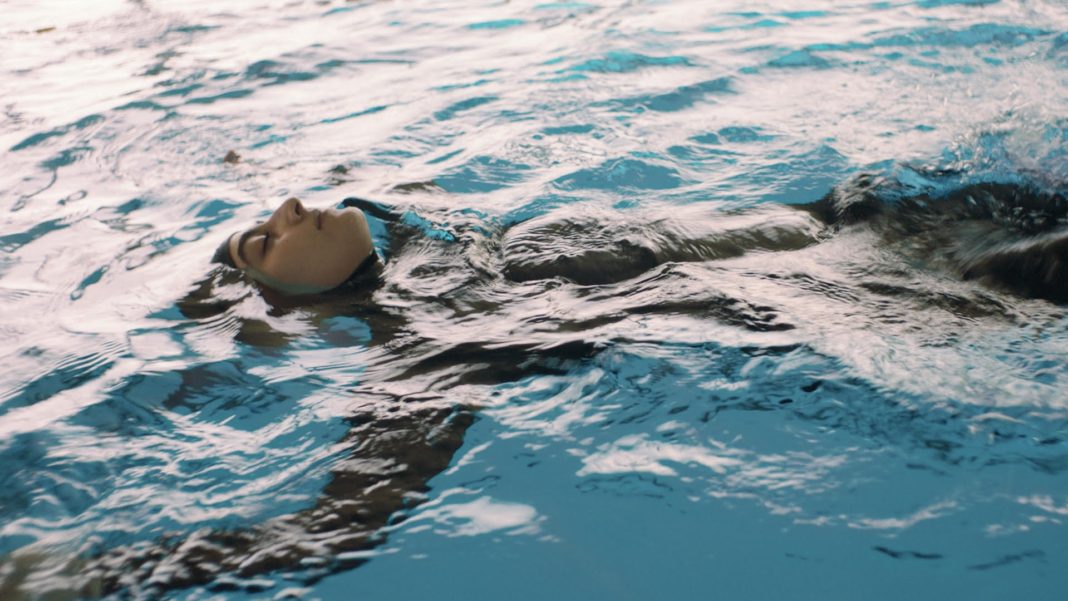Swiss film-maker Nicolas Greinacher is making waves with his brand-new festival favourite AYANEH, which tells of an female Afghan refugee adapting to a new culture with her family in Switzerland and the growing relationship with a young woman she meets at a local Swimming Pool.
Film And TV Now recently spoke to the film-maker about his film and his experience making it.
FILM AND TV NOW:: Whilst the context is in the form of a lesbian-based drama, the film very much focuses on the general challenges that an Afghan refugee goes through adapting to a different culture. What was the start-off point for the film?
NICOLAS GREINACHER: I was looking around me in Switzerland and was trying to identify topics, which I think deserve more attention. I haven’t seen any short film or frankly any kind of film dealing with a young female refugee from the Middle East adapting to Western culture and developing strong feelings for another woman. Moreover, I strongly oppose the idea of suppression of human beings from society or religion. I felt there was a strong need for a role model like “Ayaneh”, that she would have the potential to open the audience’s eyes and ultimately make them more tolerant towards the issues that she is going through.
FTVN: Tell us about your cast.
NG: The starting point was the lead playing “Ayaneh”. I knew from the beginning of writing the script that without finding someone truly unique for this role, I wouldn’t invest my time and own money into this project. I travelled all over Europe and met with dozens of very talented actresses. And then there was this beautiful, mesmerizing woman named Afsaneh Dehrouyeh from London, who I remembered from the US – TV series “Tyrant”. Afsaneh strongly related to the script as she remembered growing up as an Iranian girl in the rural UK. With Afsaneh on board, we cast the second lead, Ladina, who just graduated from the European Acting School (EFAS) in Zurich. Afsaneh actually travelled to Zurich to meet the final candidates together with me, we wanted to see if there is a genuine chemistry between the two. After Afsaneh and Ladina, I focused on Ayaneh’s mother and brother, which I both found in Germany. It was a very long and intense casting process all over Europe, but in the end, I think we got it right.

FTVN: There is an intimate scene in a dream sequence between Ayaneh and the Swiss girl she befriends. How much of a challenge was it, given the cultural challenges of this character’s journey and how have people within the Afghan community reacted to the scene so far?
NG:The script lead to this point in Ayaneh’s character development very early on, those are her natural thoughts and desires, so it wasn’t hard at all. The World Premiere took place at the legendary Rhode Island International Film Festival on Opening Night in front of around 2’000 people in the audience, including some from the Middle East. Afsaneh and Ladina were both present and we had dozens of wonderful encounters with people from the audience after the screening. The fact that we won the First Prize for BEST LGBTQ FILM from the Youth Jury showed that not only the audience embraced our film. We haven’t shown the film within an isolated Afghan environment yet as the festival circuit has only just started. Sure, some people will dislike what they see, but that’s okay, it wasn’t my intention to please everyone but rather to stay true to the story we wanted to tell, which is one of a strong Muslim woman who is prepared to fight for living her own life.
FTVN: You come from Switzerland and have been a prominent talent in filmmaking for a while. Tell us about the Swiss film industry and how does it compare to others in the world, particularly the American and British industries, which dominate financially and technically in the global market.
NG: I’d say there is great talent in Switzerland (both cast and crew) although we are a very small country with just 8 Million citizens and therefore a very small market. Financing is quite difficult if you haven’t graduated from a film school. It’s probably not the easiest country when it comes to working in the film industry as everything is pretty much dependent on public funding and the backing of the Swiss National Television. Also, my films were first discovered and playing at Festivals outside of Switzerland first, it was only later that my films started to be shown at local festivals and television. I’d say the US and UK offer more ways to break through as a filmmaker due to their market size and wider funding possibilities.

FTVN: Where did you shoot the film?
NG: We shot in and around Zurich, Switzerland on 6 consecutive days.
FTVN: Tell us about your collaboration with your Cinematographer.
NG: Due to the intimacy between our two actresses, including a shower scene, my producer Rajko Jazbec came up with the idea of working with a female cinematographer early on in pre-production. We were so lucky to get Carlotta Holy-Steinemann on Board, an experienced cinematographer who actually was nominated at the Swiss National Film Awards in the category “Best Cinematography” for a feature film she has shot. I worked very closely with Carlotta. We picked all shooting locations together and spent long hours on the storyboard. She also came up with the idea of using Cook Panchro lenses to give the film a more distinct look, which turned out to be the perfect choice for this film as you can see in the result.
FTVN: You collaborated with the script with Iranian/Swiss filmmaker Talkhon Hamzavi. How did you meet and tell us about her background.
NG: Talkhon “Tali” Hamzavi graduated from the same film school as one of my producers. Her thesis film “Parvaneh” was actually nominated for an Academy Award – a huge success for any filmmaker! Tali was helping me very early on in the writing process, especially with the backstories of the protagonists and making sure we don’t fall into certain traps during writing which would make our story illegitimate. It was an honour to have her on board. She is currently working on her feature film debut.
FTVN: How long did it take to shoot the film and how did you raise finance for it?
NG: We shot for 6 consecutive days (long hours…) and my family, friends, myself and roughly 25% from film funds mostly financed the film where we had to apply and pitch our project.
FTVN: The film is becoming a key part of the Festival circuit. What has the experience been like?
NG: It’s a thrill to see “Ayaneh” taking off and making her appearance all around the world. So far I have attended the screenings in Rhode Island and at HollyShorts, both were fantastic, I’m already looking forward to attending the next screening, wherever that may be.

FTVN: Finally, what would you like to do next and are you planning to do a feature-length version of this short?
NG: I have an idea about a Feature Documentary focusing on a famous Swiss musician. It’s very early stages, but something tells me that might be my next film. It could be an idea to convert “Ayaneh” into a feature, but I’d like to let the film in its current short-format play a few more festivals first before we make a decision on that. But the door is certainly open.





























